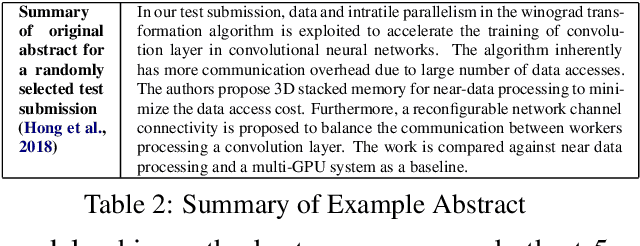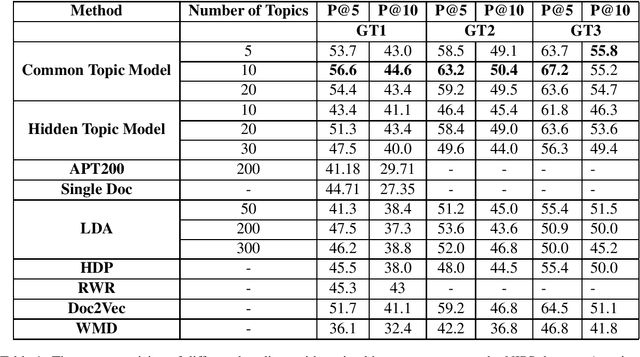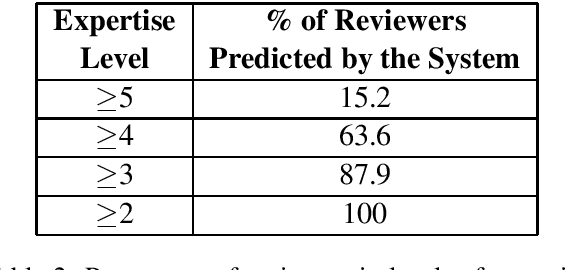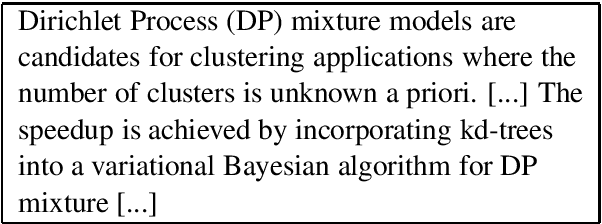Omer Anjum
Submission-Aware Reviewer Profiling for Reviewer Recommender System
Nov 08, 2022



Abstract:Assigning qualified, unbiased and interested reviewers to paper submissions is vital for maintaining the integrity and quality of the academic publishing system and providing valuable reviews to authors. However, matching thousands of submissions with thousands of potential reviewers within a limited time is a daunting challenge for a conference program committee. Prior efforts based on topic modeling have suffered from losing the specific context that help define the topics in a publication or submission abstract. Moreover, in some cases, topics identified are difficult to interpret. We propose an approach that learns from each abstract published by a potential reviewer the topics studied and the explicit context in which the reviewer studied the topics. Furthermore, we contribute a new dataset for evaluating reviewer matching systems. Our experiments show a significant, consistent improvement in precision when compared with the existing methods. We also use examples to demonstrate why our recommendations are more explainable. The new approach has been deployed successfully at top-tier conferences in the last two years.
PaRe: A Paper-Reviewer Matching Approach Using a Common Topic Space
Sep 25, 2019



Abstract:Finding the right reviewers to assess the quality of conference submissions is a time consuming process for conference organizers. Given the importance of this step, various automated reviewer-paper matching solutions have been proposed to alleviate the burden. Prior approaches, including bag-of-words models and probabilistic topic models have been inadequate to deal with the vocabulary mismatch and partial topic overlap between a paper submission and the reviewer's expertise. Our approach, the common topic model, jointly models the topics common to the submission and the reviewer's profile while relying on abstract topic vectors. Experiments and insightful evaluations on two datasets demonstrate that the proposed method achieves consistent improvements compared to available state-of-the-art implementations of paper-reviewer matching.
 Add to Chrome
Add to Chrome Add to Firefox
Add to Firefox Add to Edge
Add to Edge